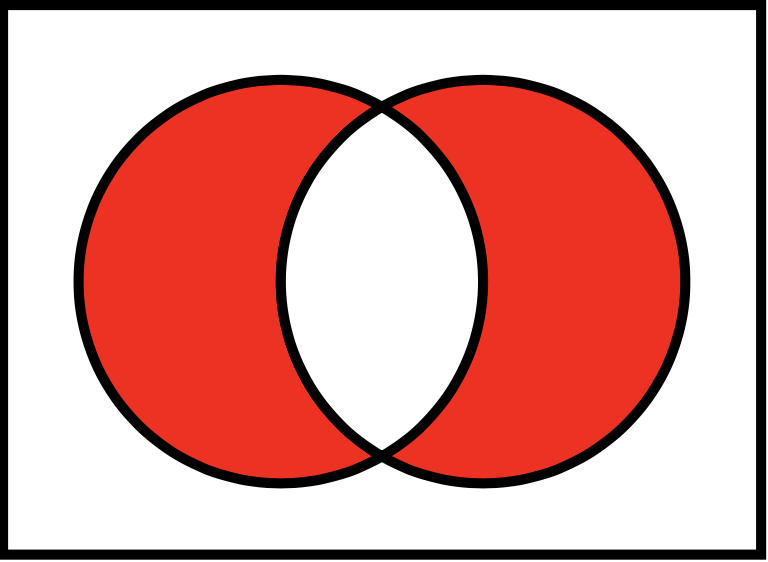I have taken a mathematical approach, as the concept of and/or lends itself very easily into binary logic gates and elementary set theory.
In the first case A AND B is true only if both A and B are, whereas A OR B is true if either are. Neither consider the case of exactly one of A/B being true - this is covered by the XOR gate, which is true if A is and B isn't, or vice versa.
In English, the XOR gate is called the 'exclusive-or' gate (as opposed to 'inclusive-or'), which might help explain your predicament.
This might explain the awkwardness of the sentence, and perhaps we should say:
"Exactly one of A xor B occurs."
The second approach notices that A and B might not be independent events, for example:
It rains
The dog barks
Although one may happen without the other, they are not exclusive events.
Conmpare with:
I threw a 1
I threw a 6
which doesn't cover all possibilities, and finally the mutually exclusive events, say:
I threw higher than a 1
So the correctness of the grammar depends on the nature of the events.

